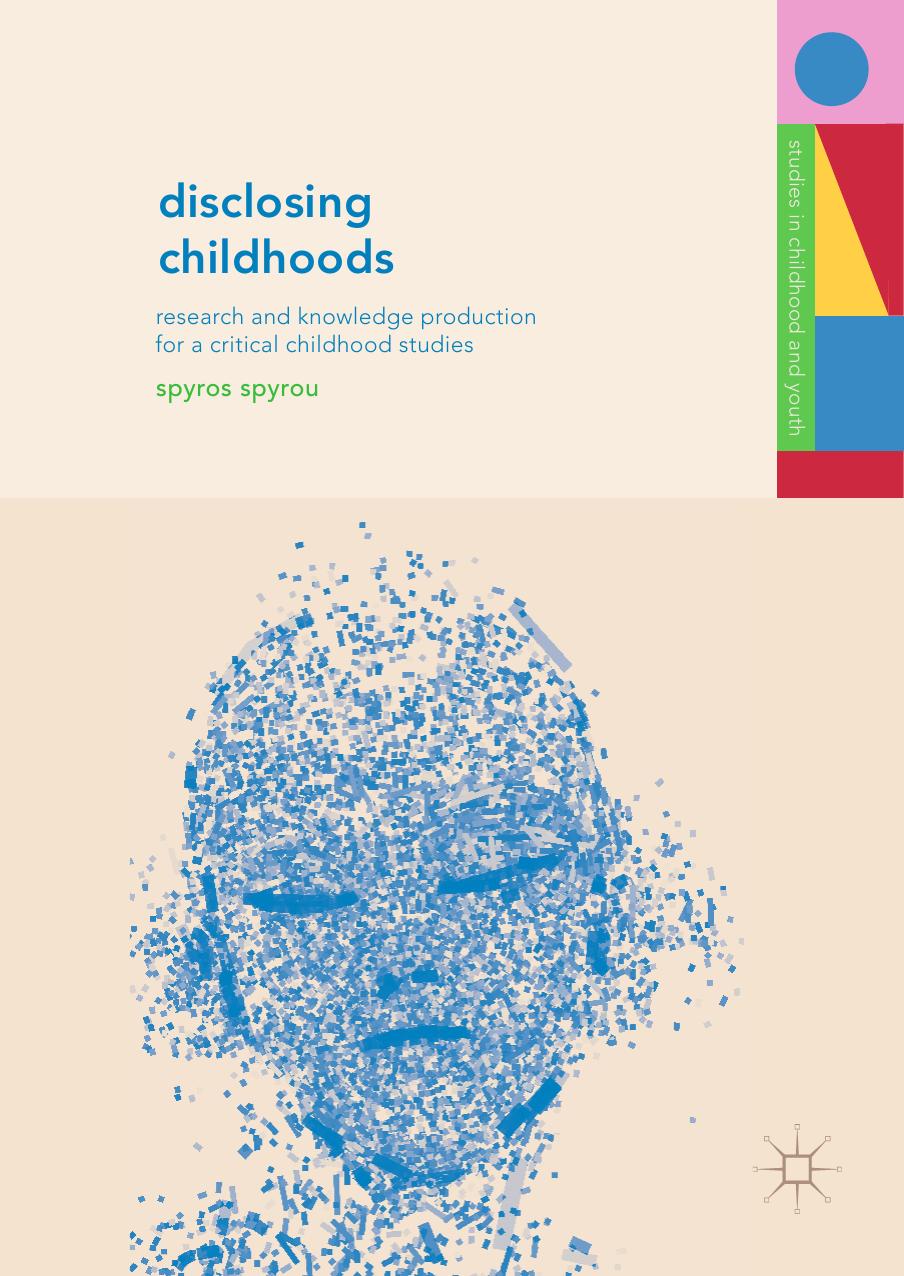Disclosing Childhoods by Spyros Spyrou

Author:Spyros Spyrou
Language: eng
Format: epub, pdf
Publisher: Palgrave Macmillan UK, London
The Fixation with Children’s Agency
Whether concern with children’s agency is rather new and brought about by the paradigmatic shift of the ‘new social studies of childhood ’ or whether it is an older concern which has preoccupied social scientists in different ways and degrees over the years as Ryan (2008) has argued, there is no doubt that the contemporary field of childhood studies has made this concept paramount in its theoretical explorations. But why this fascination with children’s agency ? At one level, a paradigmatic shift had to be accomplished through bold and strong statements which would challenge dominant and prevailing assumptions about children’s ontology while also offering a renewed agenda for research: if children, and not just adults, are social agents and if they can act and transform their worlds, then a new world could open up for the study of children and childhood.
And so it happened. The gradual but mounting realization that the dominant paradigms of psychology and sociology did not account for children’s agency (or more moderately put, failed to recognize children’s agency sufficiently) meant that it had to be acknowledged, brought forth, and foregrounded in research. At another level, the claim that children are social agents takes political significance which escapes the narrow boundaries of theoretical concern and analysis. A new social ontology for children necessitates a radically new approach to understanding children’s place in the world; if children are beings and not mere becomings, a new way of seeing children and childhood is necessary. Oswell (2013: 38) has argued that it was probably this political goal which was originally of primary interest to the new childhood studies rather than an interest in theorizing childhood and addressing the long-standing, adult-centric ways of researching children and childhood.
In their seminal work, James and Prout (1990a) included as one of the key features of the paradigmatic shift a clear statement about children’s agency . They argued that children play an active role in the construction of their own lives and social worlds and of those around them, in short, that children are, like adults, social actors : “[Children] can no longer be regarded as simply the passive subjects of structural determinations” (James and Prout 1990b: 4), a recognition which drew on the earlier contributions of social interactionism and social constructionism which highlighted the role of agency in social life (see James 2009: 38). Though retrospectively, the emphasis on the creative, agentic capacity of children was perhaps disproportionate compared to that devoted to the structural constraints which children experience in their daily lives, it was nevertheless an acknowledgement that children and their childhoods could be placed within larger debates about the nature of social life and subjectivity. In this way, children came to be recognized as social agents who act on their worlds, reproduce and transform them despite being constrained in their activity by the social structures in which their lives are embedded. By situating children within social structures and exploring their standpoint , researchers would be able to bring forth a new way of thinking about children’s ontology and their place in the world.
Download
This site does not store any files on its server. We only index and link to content provided by other sites. Please contact the content providers to delete copyright contents if any and email us, we'll remove relevant links or contents immediately.
| Arts & Humanities | Health |
| Language Arts | Library Skills |
| Mathematics | Reading & Phonics |
| Science & Technology | Social Studies |
The Art of Coaching Workbook by Elena Aguilar(51141)
Trainspotting by Irvine Welsh(21616)
Twilight of the Idols With the Antichrist and Ecce Homo by Friedrich Nietzsche(18608)
Fangirl by Rainbow Rowell(9216)
Periodization Training for Sports by Tudor Bompa(8238)
Change Your Questions, Change Your Life by Marilee Adams(7721)
This Is How You Lose Her by Junot Diaz(6859)
Asking the Right Questions: A Guide to Critical Thinking by M. Neil Browne & Stuart M. Keeley(5743)
Grit by Angela Duckworth(5580)
Red Sparrow by Jason Matthews(5452)
Paper Towns by Green John(5165)
Room 212 by Kate Stewart(5093)
Ken Follett - World without end by Ken Follett(4708)
Housekeeping by Marilynne Robinson(4425)
The Sports Rules Book by Human Kinetics(4369)
Double Down (Diary of a Wimpy Kid Book 11) by Jeff Kinney(4253)
Papillon (English) by Henri Charrière(4239)
The Motorcycle Diaries by Ernesto Che Guevara(4075)
Exercise Technique Manual for Resistance Training by National Strength & Conditioning Association(4049)
